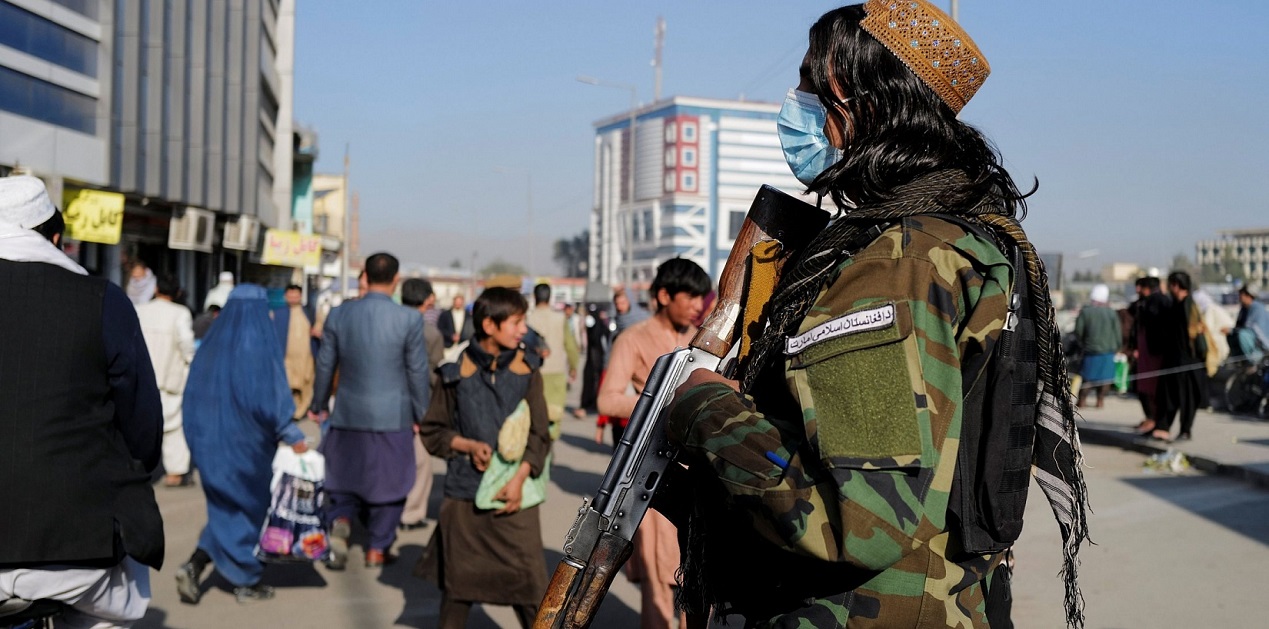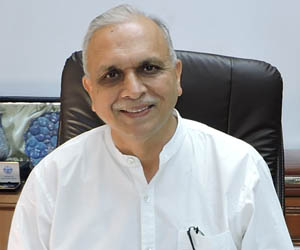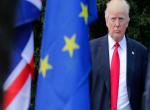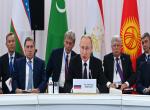India has yet to come to terms with the Taliban takeover. The Taliban cabinet consists of UN-sanctioned individuals who have committed heinous terror attacks in the past. The Taliban are not independent, writes Arvind Gupta, Director of the New Delhi-based Vivekananda International Foundation.
Following the takeover of Afghanistan by the Taliban on August 15, 2021 and the US troops’ withdrawal, Indian Prime Minister Modi and US President Biden discussed the situation in Afghanistan during their meeting at the White House on September 24. The two leaders “reiterated their shared commitment to work together to counter global terrorism” and agreed to “continue to closely coordinate with each other and their partners towards an inclusive and peaceful future for all Afghans”.
India has broadly supported the US on Afghanistan since 2001, even though their positions have not always been identical. For the US, eliminating the Al Qaeda threat was the raison d'être for its 20 year-long war in Afghanistan. For India, Pakistan’s relentless support for the Taliban and the India-specific terror groups who fought alongside the Taliban were the main worry. Due to relentless pressure from Pakistan, the US kept India out of its political efforts towards an Afghan settlement. The US had always regarded Pakistan as being indispensable to an Afghan settlement. Pakistan vehemently resented India’s role in Afghanistan. In the end, the US tilted towards Pakistan over India, even ignoring the fact that the Pakistani military establishment had hidden Osama bin Laden from the US in a cantonment for several years.
Like other countries in the region, India also benefitted from the security that the US troops provided to the region against the Taliban and Al Qaeda threat. India was content with engaging the Afghan government and people by providing USD 3 billion in developmental and economic assistance and building hundreds of high-impact community development projects which benefitted the people of Afghanistan. While Pakistan-based terror groups were wreaking havoc in Afghanistan, Afghan children were getting Indian wheat and the youth were studying in India. The investment in the physical, human and social capital has earned India the Afghan peoples’ enormous goodwill. Thousands of Afghan students have been educated and trained in India over the last twenty years. The US encouraged India to continue to help in nation building in Afghanistan even though it had itself abandoned the project along the way.
There were reasons for India to be deeply sceptical of the Taliban. In July 2008, the Indian embassy in Kabul was attacked by the Haqqani group, a well-known proxy of Pakistan. A senior Indian diplomat and scores of others died in that attack. There were other attacks and kidnappings too. The Haqqani group, which now has a dominant role in the Taliban cabinet, was behind the attacks. Not surprisingly, India shunned any dialogue with the Taliban and remains sceptical of the new regime.
The Indian position began to change marginally when in February 2020, President Trump’s Special Envoy Ambassador Khalilzad negotiated a US troop withdrawal with the Taliban. The US had concluded that it did not want to continue to fight a war in Afghanistan, which had cost it thousands of lives and trillions of dollars. Trump wanted to cut losses and leave Afghanistan at any cost. The so-called “Doha peace process” was highly flawed. It provided legitimacy to the Taliban at the expense of the elected government of President Ghani in Kabul. India was sceptical of the Doha process but went along with it because not just the US, but also other nations like Russia, Iran and China, had also started to indulge the Taliban for their own reasons. Russia launched the so-called Moscow format to which India sent two of its former diplomats on a listening brief. The Indian External Affairs Minister addressed the opening session of the Doha peace negotiations in Sep 2020 virtually. While Delhi retained its scepticism about the Taliban and the Doha peace process, it reluctantly began to engage with them for fear of being left out of in the cold.
India has yet to come to terms with the Taliban takeover. The Taliban cabinet consists of UN-sanctioned individuals who have committed heinous terror attacks in the past. The Taliban are not independent. Pakistan’s influence on them is evident, as the world saw how the former Director-General of Pakistan’s Inter-Services Intelligence (ISI) landed in Kabul at the time of the formation of the Taliban cabinet, partly to ensure the dominance of the Haqqani group.
Despite their assurances to the international community, the Taliban have done little, which might give confidence that they would form a truly inclusive government, as well as respect the rights of the minorities and of women. Dozens of terrorist groups including those that target India specifically are present on Afghan soil. On August 17, India recalled its diplomats and repatriated its nationals from the country out of safety and security concerns. A senior Taliban official met the Indian ambassador in Doha a few days later, but that meeting has not made India any less sceptical. Under the Indian presidency of the UN Security Council, UNSC resolution 2591 was passed. It lays down the expectations of the international community from the Taliban. Russia and China abstained from voting, reflecting fissures in the P5. Indian Prime Minister Modi, addressing the Shanghai Cooperation Organisation (SCO) summit meeting, called upon the Taliban not to let the terrorist groups use Afghan soil to attack any country.
The US and Indian positions are fairly similar on terrorism emanating from Afghan soil. The US Deputy Secretary of State Wendy Sherman was in New Delhi in October for consultations in which Afghanistan was also discussed. The two sides have agreed to further strengthen counter-terrorism cooperation.
There are apprehensions that the Taliban continue to maintain links with Al Qaeda. This deeply concerns the US. For India too, Al Qaeda, Islamic State Khorasan (ISK), Jaish-e-Mohammad (JeM) and Lashkar-e-Taiba (LeT) present a major threat in Kashmir and the Indian hinterland. India remains interested in counter-terrorism cooperation with the US and other countries, including Russia.
India is watching carefully how the United States’ relations with Pakistan develop in the wake of the Taliban’s return to power in Kabul. The US has lost a lot of influence in the region. It is likely to count upon Pakistan for intelligence and other counter-terrorism cooperation. However, Pakistan’s cooperation will not come cheap. Pakistan wants the US to provide the same kind of privileges and considerations that it extends to India. In other words, it wants the US to treat it as equal to India in all respects, and restore the hyphenation between India and Pakistan, which over the years has been abandoned by US administrations.
Wendy Sherman visited Islamabad after visiting India recently. But she has stated that US cooperation with Pakistan will be narrowly focussed. There is no question of the US hyphenating India with Pakistan. This is understandable. Very recently, the US Secretary of State faced hostile questioning in the US Senate Foreign Affairs Committee, where many senators demanded that Pakistan be sanctioned for its double game, which has harmed US interests. For instance, while Pakistan posed as a friend of the US, it continued to provide support to Taliban factions which were attacking US soldiers and assets with impunity for years.
The recent developments in Afghanistan are likely to bring India and the US even closer together. Having withdrawn from Afghanistan, the US is no longer hostage to Pakistan’s demands. India has a multifaceted “comprehensive global strategic partnership” based on a strategic convergence of interests. This partnership is likely to grow even further. The global rebalancing that is underway due to the rise of China is emerging as an important driver of the Indo-US partnership. Afghanistan will not be the main driver of this relationship. The US has emerged as a supplier of high tech defence equipment to India. US companies are investing in the Indian market aggressively. The two sides are likely to develop their counter-terrorism cooperation further in the post-Taliban period. They are working to develop the Quad as an effective institution in the Indo-Pacific. India is an important player in Quad’s ambitious vaccine development and distribution programme. PM Modi has described the Quad as a “force for global good”.
However, there is one big difference between the US and India on Afghanistan. For India, terrorism emanating from Afghanistan presents a direct and immediate security risk. Indian agencies have made massive seizures of heroin hidden in a talcum powder consignment destined to one of its ports. The consignment originated in Afghanistan and came via Iran. The threat to the US from Afghanistan is far less significant. China is now the main concern for the US, not Afghanistan.
India realises that in dealing with the Afghanistan situation, it will have to increasingly rely on the other countries of the region. That is why it has stepped up its consultations with Russia, Central Asia, Iran and other countries. Modi’s comprehensive comment at the SCO summit, in which he put terrorism centre stage and talked about Afghanistan should be seen in this context. The recalibration of India’s Afghan policy and greater engagement with countries in the region, including the SCO members, is one of the results of the Taliban takeover.











Post new comment